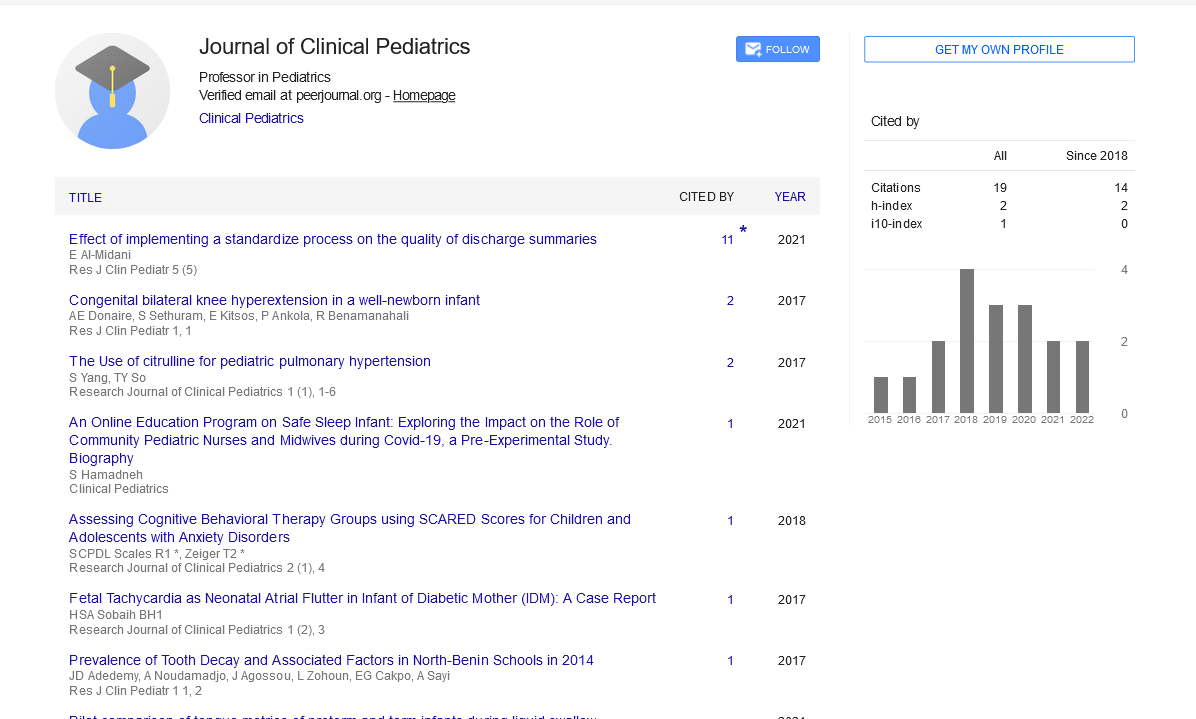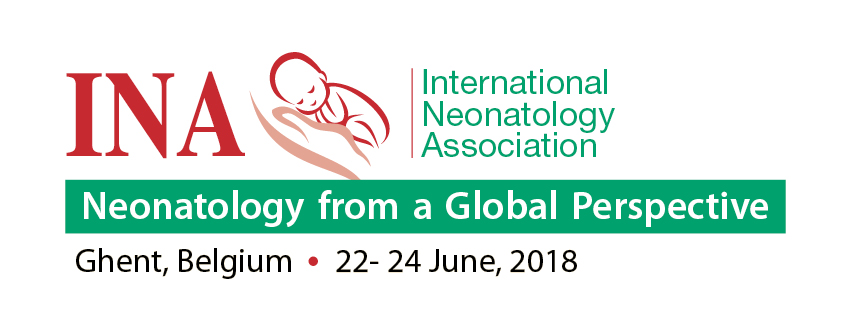Perspective, Res J Clin Pediatr Vol: 7 Issue: 2
Examining the Impact of Pediatric Infectious Diseases on Human Health
Bruno Joey*
Department of Pediatrics, Central Michigan University, Michigan, United States of America
*Corresponding Author: Bruno Joey Department of Pediatrics, Central Michigan University, Michigan, United States of America E-mail: Bruno_joeycmu11@gmail.com
Received date: 22 May, 2023, Manuscript No. RJCP-23-105499;
Editor assigned date: 25 May, 2023, PreQC No. RJCP-23-105499 (PQ);
Reviewed date: 08 June, 2023, QC No. RJCP-23-105499;
Revised date: 15 June, 2023, Manuscript No. RJCP-23-105499 (R);
Published date: 22 June, 2023, DOI: 10.4172/Rjcp.1000142
Citation: Joey B (2023) Examining the Impact of Pediatric Infectious Diseases on Human Health. Res J Clin Pediatr 7:2.
Description
Pediatric infectious diseases pose a significant threat to the health and well-being of children, as well as their long-term development. These infections, caused by various pathogens such as bacteria, viruses, and parasites, can have far-reaching consequences for human health. The impact of pediatric infectious diseases sheds light on the physical, emotional, and societal implications for children and the broader community. Pediatric infectious diseases can manifest a range of physical health effects. Common illnesses like respiratory tract infections, gastrointestinal infections, and skin infections can cause discomfort, pain, and potentially life-threatening complications. For instance, untreated bacterial infections, such as streptococcus or staphylococcus, can progress to sepsis, affecting vital organs and demanding immediate medical attention.
Additionally, some infectious diseases can result in long-term health issues. For instance, certain viral infections like measles or mumps may cause complications like pneumonia, encephalitis, or deafness. Furthermore, children who suffer from severe infections, such as meningitis or septicemia, may experience neurological deficits, developmental delays, or even disabilities. Beyond the physical implications, pediatric infectious diseases can have a profound emotional and psychological impact on children. Coping with illness, prolonged hospital stays, and invasive medical procedures can lead to increased levels of stress, anxiety, and fear. Younger children, especially, may struggle to comprehend their condition and experience emotional distress due to separation from their families or disruption in their daily routines.
Moreover, the burden of chronic or recurrent infections can negatively impact a child's self-esteem and social interactions. Frequent absences from school or social activities due to illness can isolate children and affect their overall emotional well-being. The long-term psychological effects of these experiences may extend into adulthood, influencing mental health outcomes and the quality of life. Pediatric infectious diseases not only affect individual children but also have broader societal implications. Outbreaks of infectious diseases in schools or day care centers can lead to the spread of infections within communities. This can put vulnerable populations, such as infants, the elderly, and individuals with compromised immune systems, at increased risk.
In addition to the immediate health consequences, infectious diseases can strain healthcare systems and economies. The cost of medical treatment, hospitalization, and ongoing care for affected children can be substantial. Moreover, outbreaks can disrupt educational institutions and workplace productivity and result in financial burdens for families due to missed workdays or the need for additional childcare.
To address the impact of pediatric infectious diseases on human health, a comprehensive approach is needed. Vaccination programs, routine hand hygiene, and proper infection control measures are essential in reducing the incidence and spread of infections. Public health initiatives, education campaigns, and early detection and treatment are vital for timely intervention and the prevention of complications. Prevention is paramount to reducing the impact of pediatric infectious diseases on human health. Vaccines are one of the most effective ways to prevent infectious diseases. The occurrence and severity of diseases can be greatly decreased by ensuring that children receive the required immunizations in accordance with the immunization schedule.
Proper hand hygiene, including regular hand washing with soap and water or using alcohol-based hand sanitizers, can help prevent the spread of infectious agents. Infection control measures, such as covering the mouth and nose when coughing or sneezing and avoiding close contact with infected individuals, are also important in limiting transmission. Public health initiatives should focus on educating parents, careers, and children about infectious diseases, their modes of transmission, and prevention strategies. This includes promoting hygiene practices, proper nutrition, and recognizing early signs of illness for timely intervention.
Conclusion
Pediatric infectious diseases have a significant impact on human health, encompassing physical, emotional, and societal aspects. The prevention, early detection, and appropriate management of these infections are essential to reducing their adverse effects. By prioritizing vaccination, infection control, and comprehensive care, one can protect children's health, promote their well-being, and foster a healthier future for all. Governments play a vital role in implementing policies that support immunization programs, allocate resources for healthcare infrastructure, and promote public health initiatives focused on prevention and education.
 Spanish
Spanish  Chinese
Chinese  Russian
Russian  German
German  French
French  Japanese
Japanese  Portuguese
Portuguese  Hindi
Hindi 
